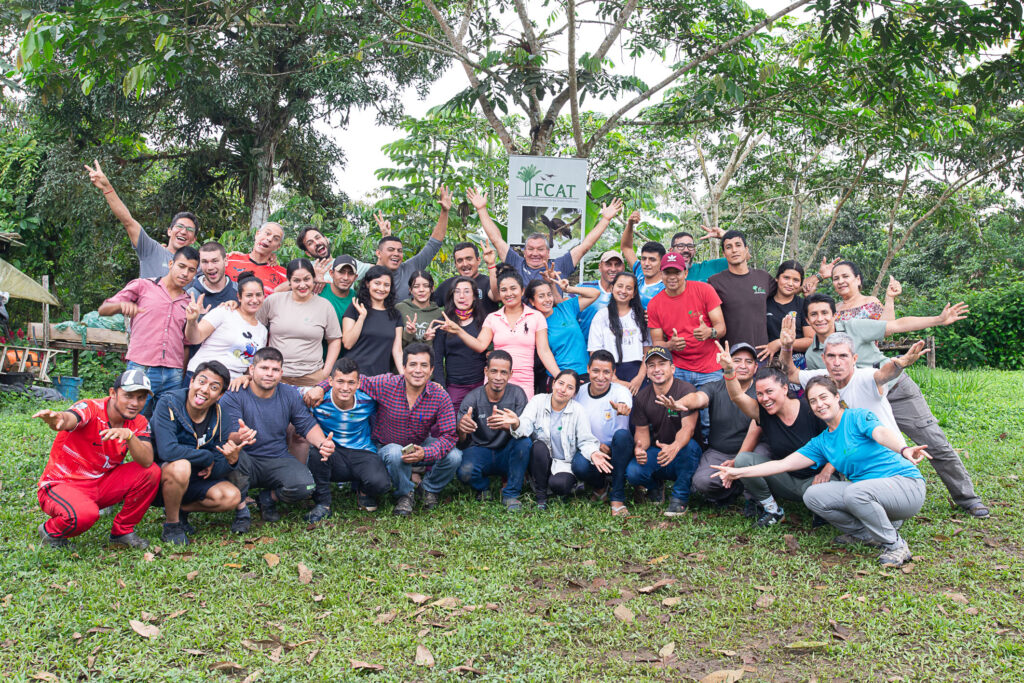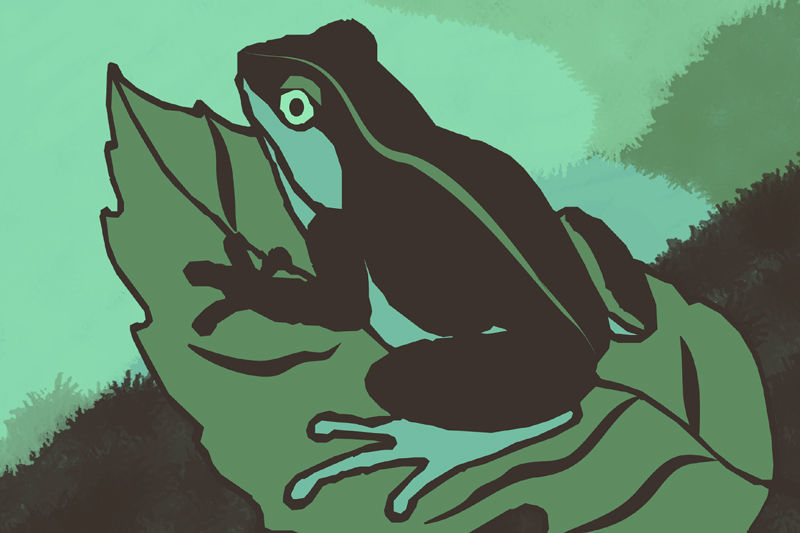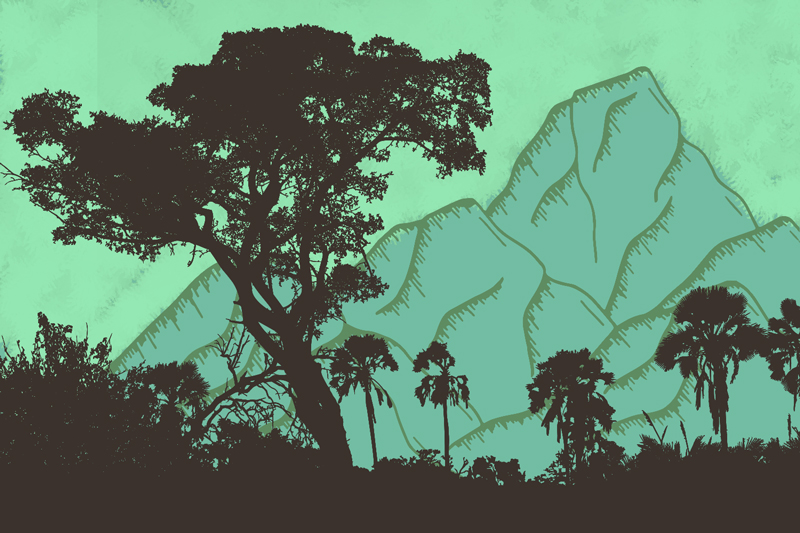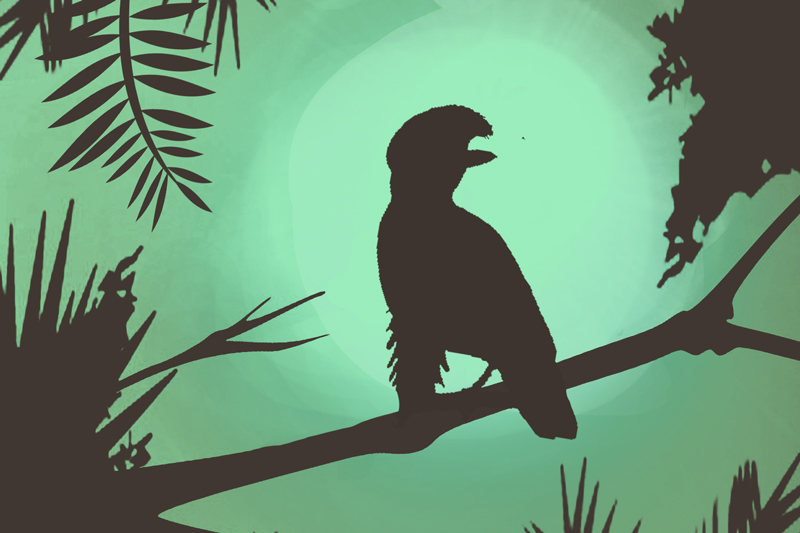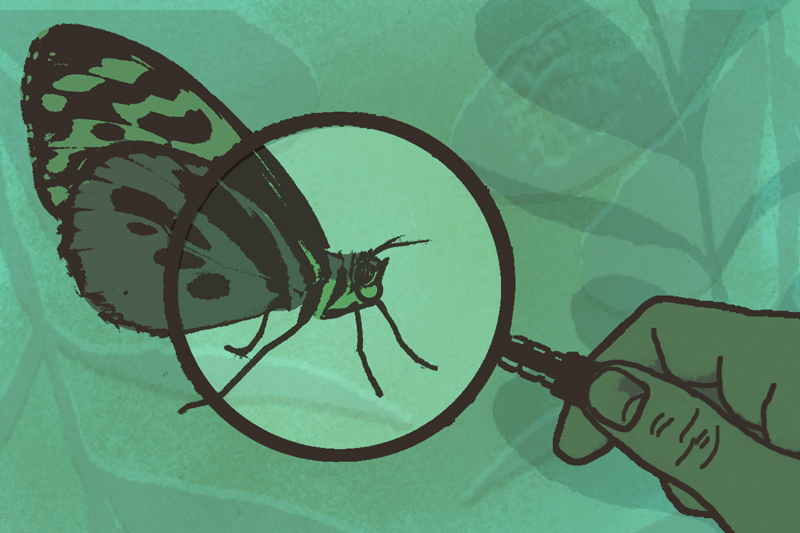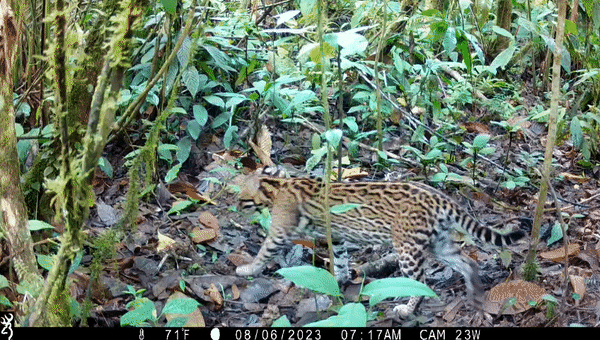

5 Year Anniversary of the FCAT Reserve
In 2018, a dream became a reality at FCAT – to create a reserve and field station dedicated to conservation, education, and research in the Chocó rainforests of Ecuador. This wasn’t just a construction project; it was a labor of love and determination. Our team, braving challenging conditions, built the field station with their own hands.
Over the past 5 years, our station has transformed into a vibrant local and international hub, welcoming over 200 visitors from 30 institutions across 14 countries this year alone. Scientists, artists, and local students have all found a home here. We extend our heartfelt thanks to every visitor and supporter who helped turned this dream into a reality.
This October marked another milestone in our journey of creating a sustainable biological corridor between La Laguna de Cube and Bilsa Biological Station. We acquired a 53-hectare property, expanding our reserve to over 650 hectares. We are grateful to the USFWS NMBCA program for making this possible. The FCAT Reserve now firmly sits as one of the last havens for wildlife in the incredibly threatened and biodiverse Chocó forests of northwestern Ecuador.
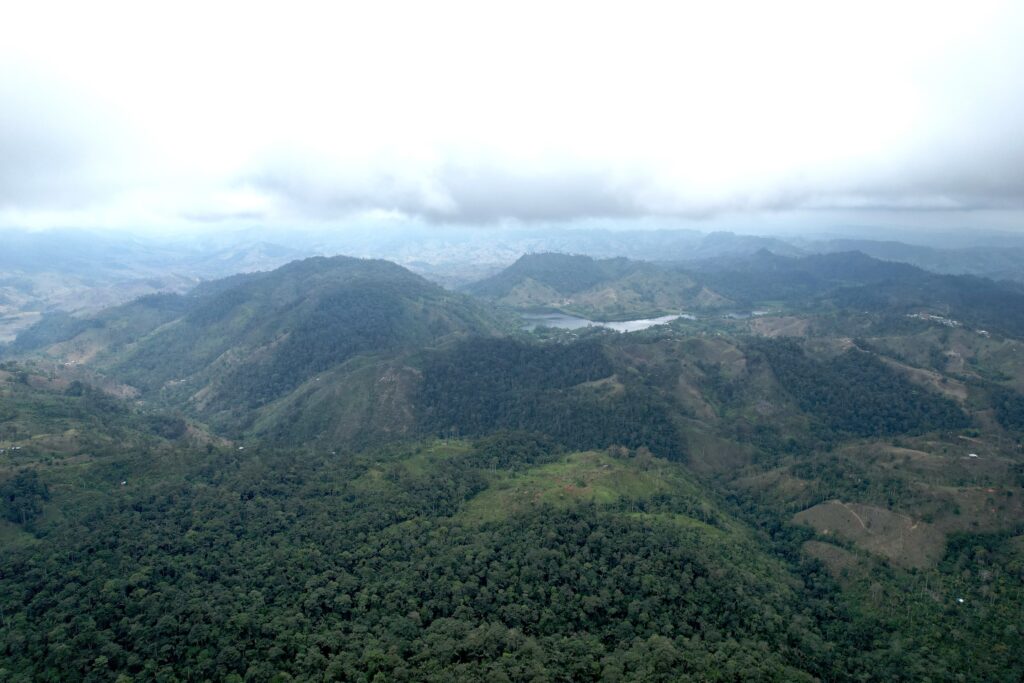

Youth Empowerment
A central part of FCAT’s mission is to train and empower local youth to become environmental leaders in their own communities. From this idea, Club Nueva Generación was born– an intensive capacity building and leadership program that provides high quality field-based and experiential learning opportunities to local youth. After 1.5 years of intensive training sessions, we are incredibly excited to honor the first graduating class of Club Nueva Generación. We are thankful to the members of this first graduating class who took the initiative to regularly travel to the FCAT field station on their days off from school, to seize the opportunity to further their education and transform themselves into environmental leaders. They serve as an inspiration for all of us at FCAT and beyond.
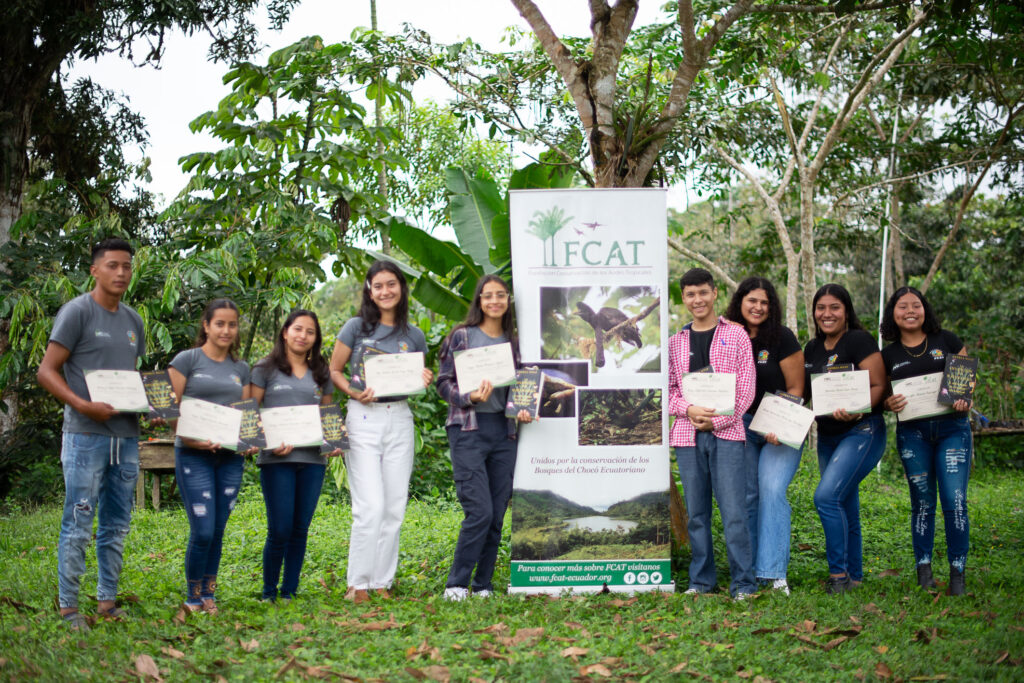

A formative moment happened this summer for the Club, when five members attended a symposium in Quito, co-organized by FCAT and the Universidad Andina Simón Bolívar, focused on how empowering locals in tourism, education and science could promote the conservation of the Chocó biodiversity hotspot. There, Club Nueva Generación member Arelys Menéndez delivered an exceptional speech during which she addressed leaders from other organizations, highlighting the significant challenges her community faces, such as the disruption of regular school attendance due to frequent floods.
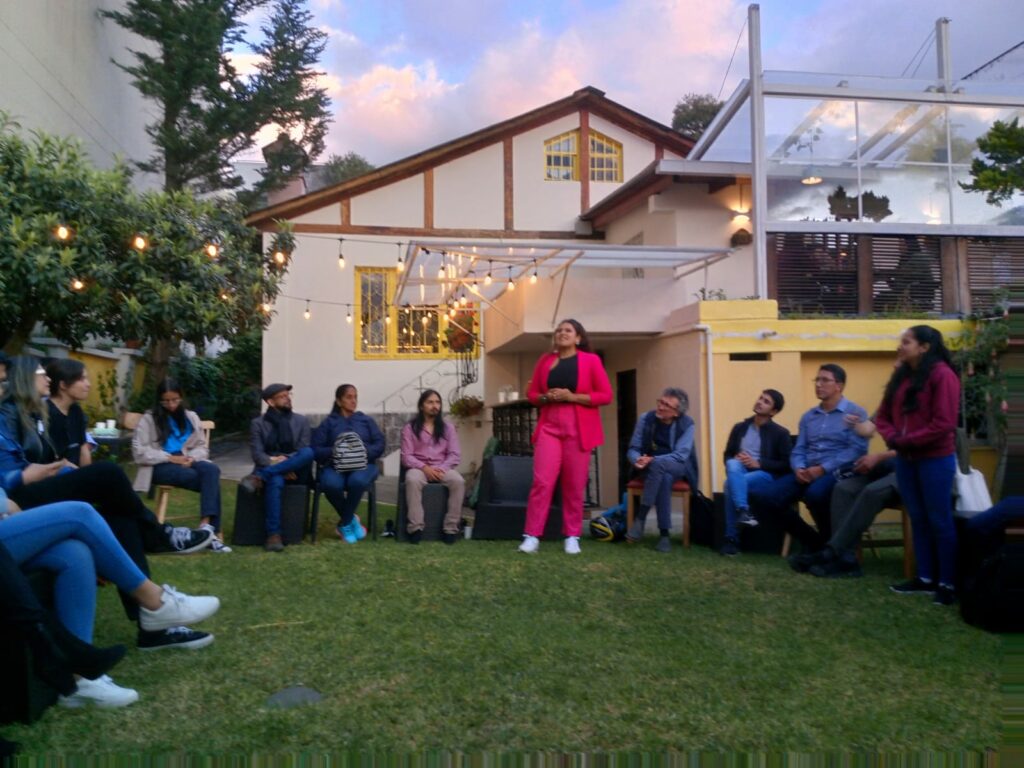

“The Next Generation Club at FCAT has been and will continue to be my most beautiful experience. I learned so many new things, met wonderful people, and shared unforgettable moments with them. How can I not be grateful for the opportunity that was given to me, not just to me but to most of the young people in our area? That’s why I hope that many children and young people continue to join so that the Next Generation Club can carry on. Infinite thanks to all those who are part of and support FCAT. “
– Arelys Mendendez
We are grateful to ICFC and Doug and Sheila Rogers for their support of Club Nueva Generación. Stay tuned for more news as we recruit a new cohort of students in 2024 and members of the first cohort continue their education in University or as researchers at FCAT.
Research and Conservation Highlights
The Chocoan Bushmaster Project
This summer, María Elena Barragán from the Fundación Herpetológica Gustavo Orcés and the Quito Vivarium visited the FCAT reserve to kickstart a project researching the ecology and movement of the Chocoan Bushmaster (Lachesis acrochorda). María led an intensive capacity building program with the FCAT staff on safe handling procedures when working with snakes.
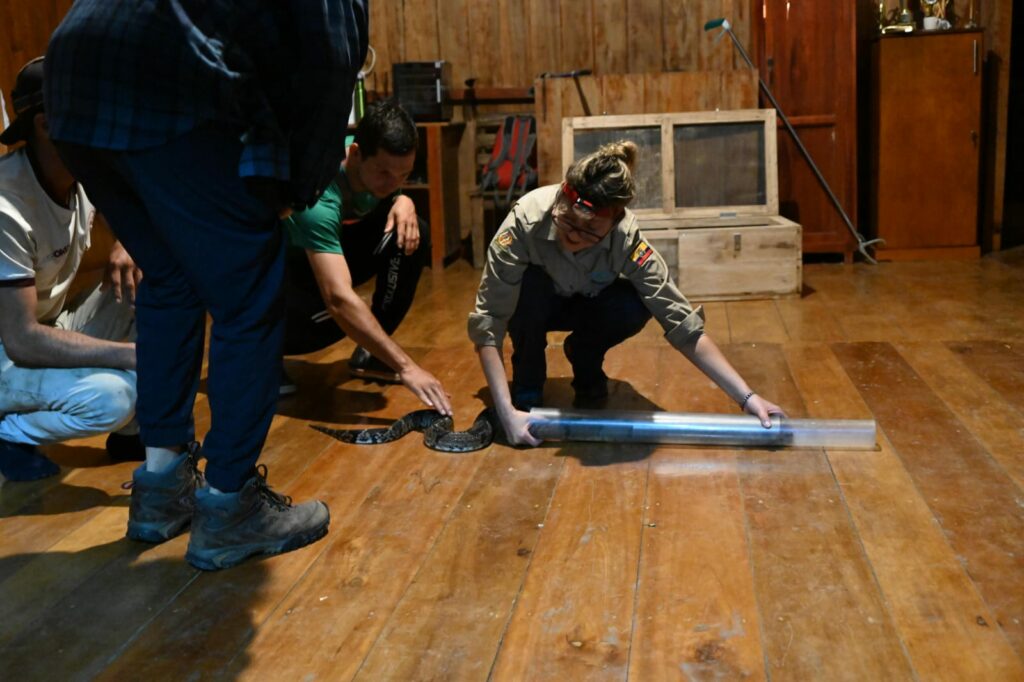

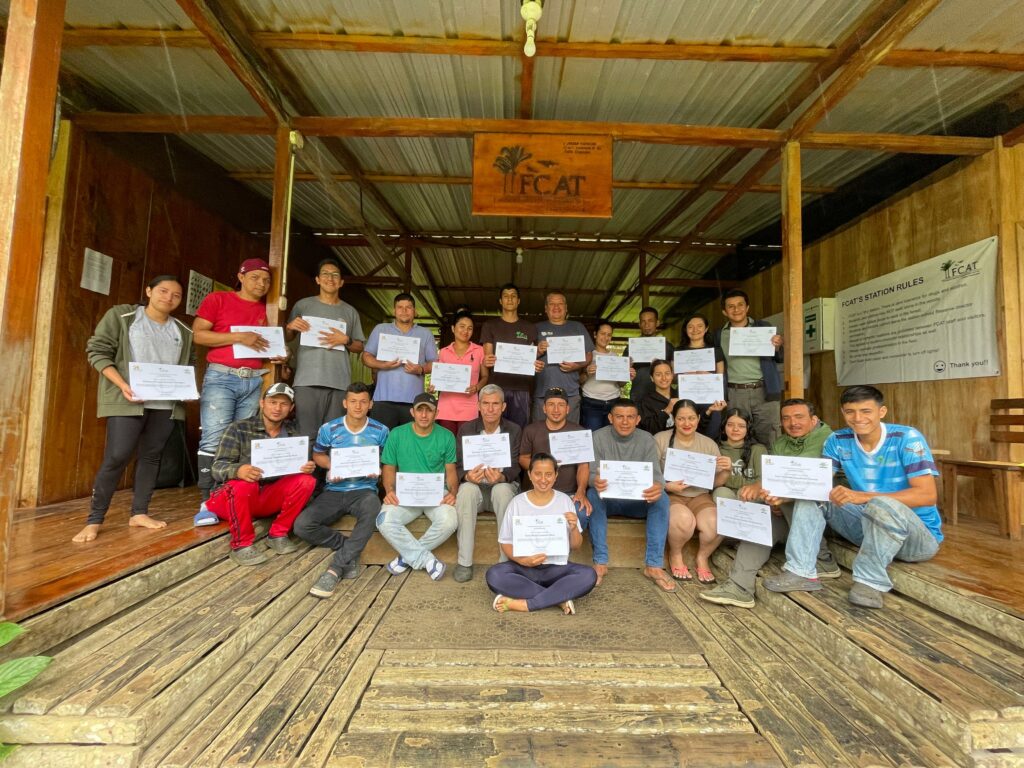

Long-wattled Umbrellabird Research
Luke Anderson, Phd Candidate at Tulane University, and FCATero Jorge Olivo recently published a paper focusing on the behavioral ecology of Long-wattled Umbrellabirds during reproductive periods, investigating the potential benefits of males interacting outside of leks.
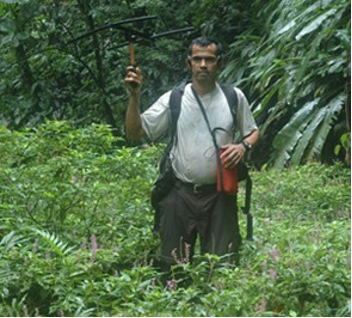

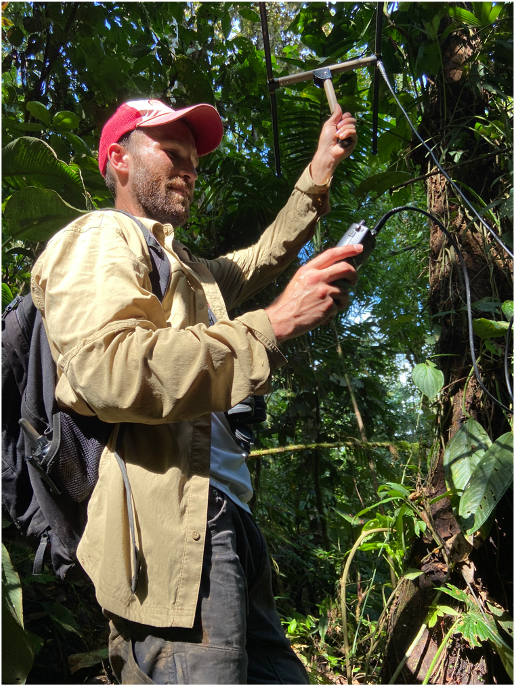

Cavity Nesting Birds
Alison Ke, PhD Candidate at UC Davis, published a paper with FCATeros Beto Gonzalez and Evaristo Cedeño on cavity nesting birds in agricultural areas, where they found that the availability of cavities in agricultural landscapes can be a limiting factor for nesting birds and that adding nest boxes in agricultural landscapes can help promote nesting opportunities for birds.
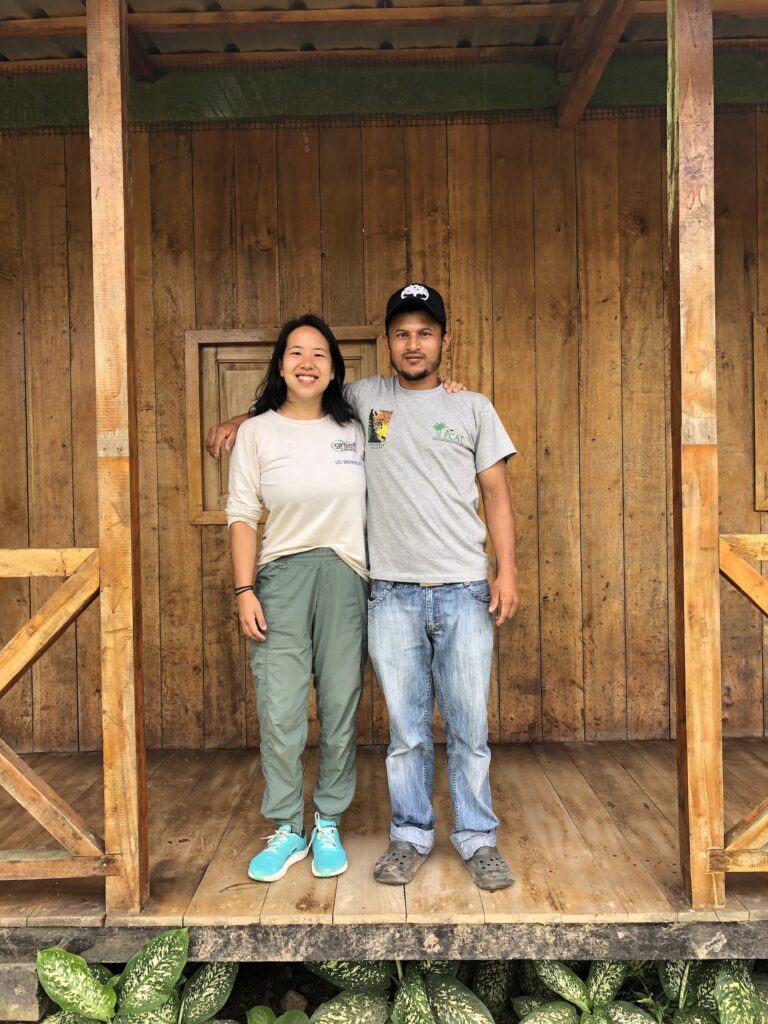

Celebrating New Beginnings
In August, the FCAT team documented the successful fledging of a chick of the endangered Long-wattled Umbrellabird, a species at the heart of FCAT’s conservation efforts for more than 20 years. Moments like this give us hope.
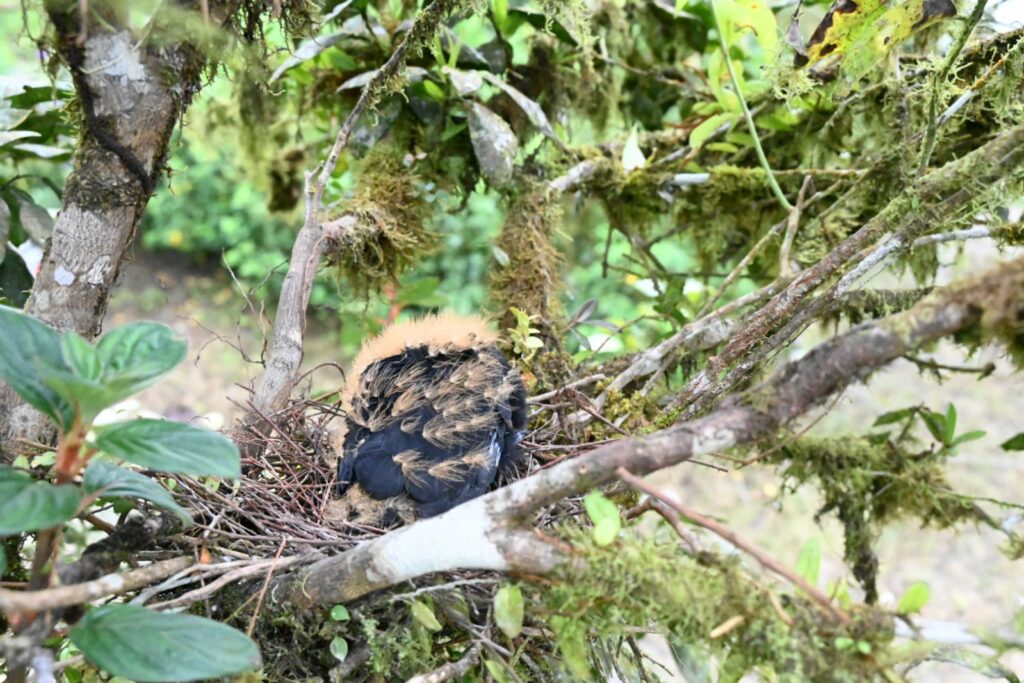



Cedrela angusticarpa is a recently described species that is likely critically endangered found within the FCAT Reserve. After much trial and error, FCAT Restoration Manager Carlos Aulestia and team were able to achieve high rates of germination for Cedrela angusticarpa seeds, with now almost 1,000 little Cedrela seedlings growing in our shadehouses. Our goal is to dramatically increase the population of this species on the brink of extinction via restoration within the FCAT reserve and surrounding communities.
South American Bird Fair
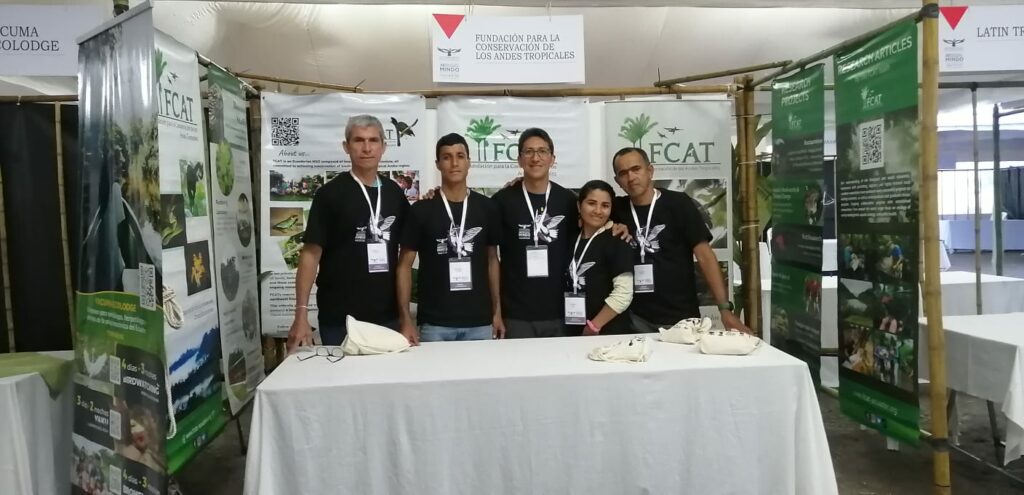

This October, Gloria Loor, Gregory Paladines, Domingo Cabrerra, Jorge Olivo, and Luis Carrasco represented FCAT at the South American Bird Fair in Mindo, an event that brought together a diverse group of ornithologists, conservationists, and bird enthusiasts from across the continent. Our own Jorge Olivo, a seasoned researcher with two decades of experience, delivered an inspirational presentation on the Long-wattled Umbrellabird, a species central to FCAT’s conservation mission. His speech not only highlighted our long-term research efforts but also underscored the critical importance of community-based conservation for this endangered species.
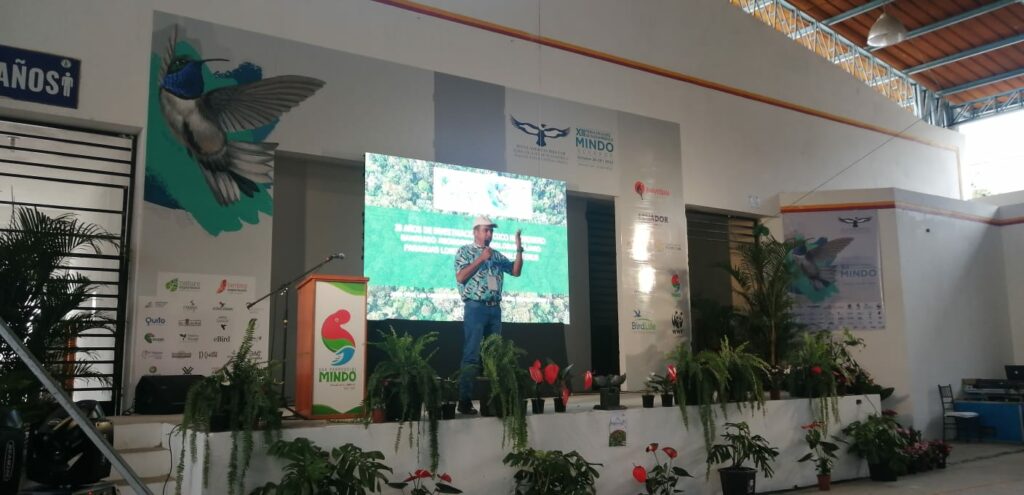

The fair was a milestone for FCAT team members Gloria Loor and Gregory Paladines, attending their first-ever conference. Their experiences were transformative, as they engaged with fellow experts, sharing insights and learning from others’ experiences. Gregory’s participation in a roundtable discussion about community involvement in conservation was particularly noteworthy. These interactions have not only enriched their knowledge but also strengthened FCAT’s network within the conservation community, fostering new collaborations and opening doors for future projects.
Strategic Planning Retreat
In November, the entire FCAT team came together for a much-anticipated retreat at our field station. Facilitated by the expert team at KENU, these four days were a blend of intensive group activities, strategic planning, and reflective sessions. This retreat was more than just a team-building exercise; it was a vital step in aligning our collective vision for FCAT’s future.
The retreat allowed us to delve deep into our mission, evaluate our progress, and brainstorm innovative approaches to tackle upcoming challenges. We emerged with a renewed sense of purpose and a clear roadmap to amplify our impact in conservation, research, and community engagement. In the coming months, we are excited to unveil the initiatives and strategies born from this retreat, as we continue to advance our mission to conserve incredible biodiversity of our planet with local communities.
